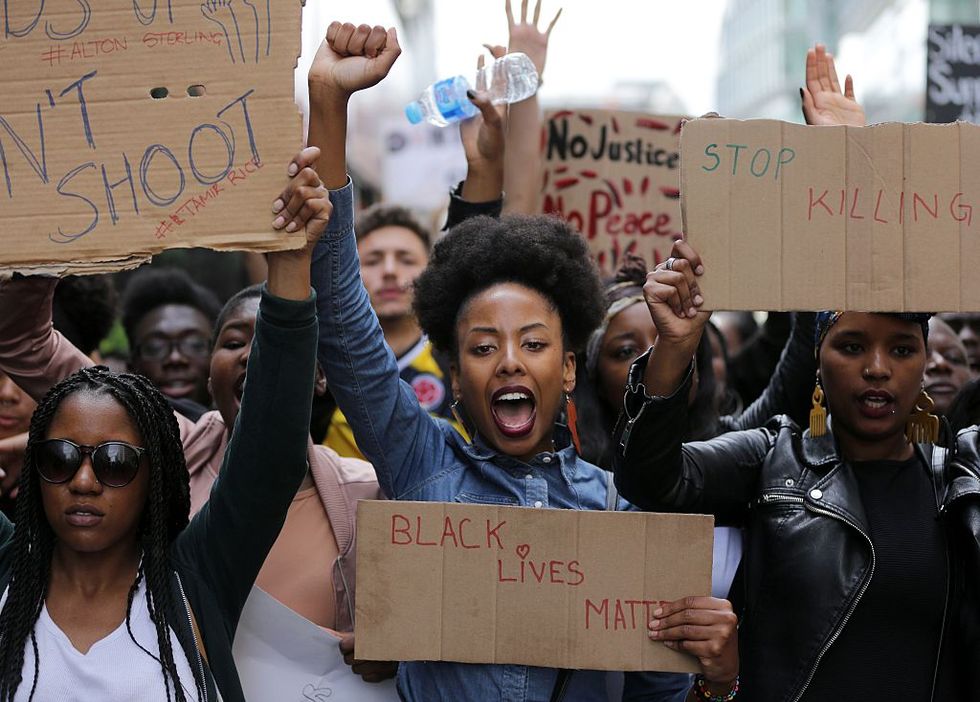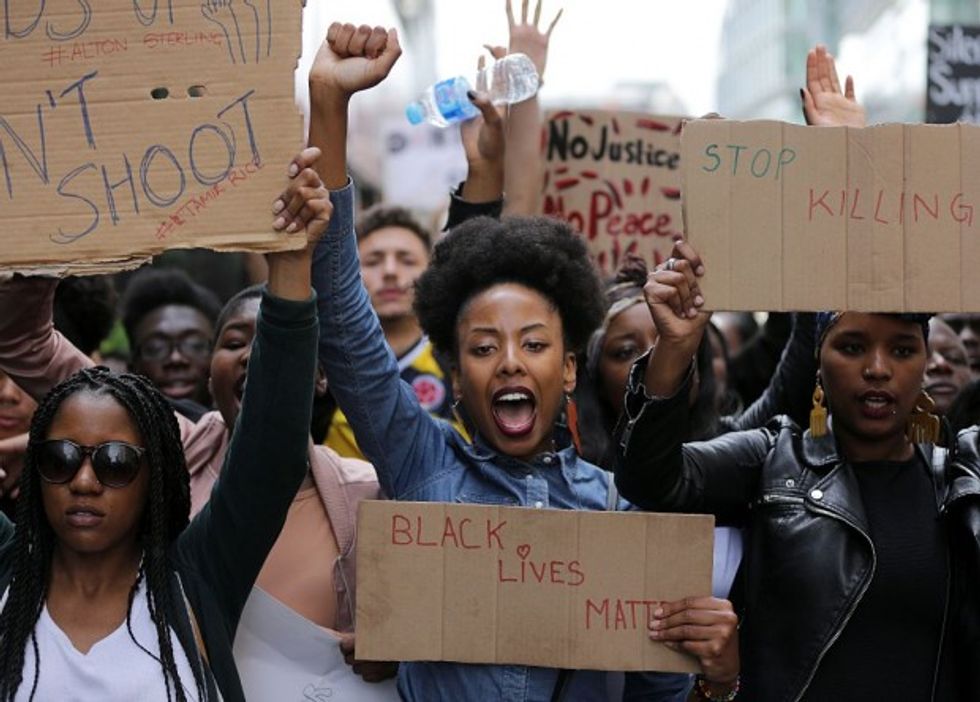
Insiders and spokespersons for the Black Lives Matter movement reveal what's going on inside the organization. (DANIEL LEAL-OLIVAS/AFP/Getty Images)

If your city has the second largest proportion of black Americans in the United States, at 32 percent, wouldn’t you expect an organization called Black Lives Matter to come to the rescue or at least offer assistance after a severe flood, like the most recent one in Louisiana?
Let me ask it another way. Wouldn’t you expect an organization that calls itself Black Lives Matter to help out African Americans in a city with the second largest proportion of black Americans after receiving $33 million from George Soros?
Or better yet, let me ask it one final way to drive home the point.
Wouldn’t you expect an organization that calls itself Black Lives Matter, to lend a hand to the people within a city that has the second largest proportion of black Americans, after receiving pledges in the amount of $100 million over the next six years from the Ford Foundation and Borealis Philanthropy?

I’ve searched everywhere in the news and I can’t find one example of where Black Lives Matter has reached out to help black families who have been effected by the flood, let alone white, Hispanic or Asian families. Nor have I seen evidence where they have offered to donate to other worthy causes. Why is that?
If I were African-American, I would certainly be asking myself if I really matter to this organization that professes to care about African-Americans.
For instance, I can’t even find one example of this group reaching out to assist with buying new shoes for underprivileged African-American children who are returning to school and may not even have decent shoes to wear.
On the other hand, I easily found an organization, without an extensive search, called the Portland Police Bureau Sunshine Division, who has been providing free food and clothing assistance for 93 years. They claim to help all races, not a particular race, if help is needed.
Then I thought, maybe Black Lives Matter has given donations to assist in furthering the education of impoverished African-Americans in the U.S., but I was unable to find a single donation from them.
However, after another random search, I quickly found an organization called Save the Children. Their website discusses the importance of breaking the cycle of poverty and lists many programs they provide help people of all ethnicities.
“Save the Children invests in childhood – every day, in times of crisis and for our future. In the United States and around the world, we give children a healthy start, the opportunity to learn and protection from harm. By transforming children's lives now, we change the course of their future and ours.”
Many agree that poverty is a huge issue for a number of African-Americans and that education could improve their impoverished situation.
Why then aren’t groups like Black Lives Matter who claim to want to help African-Americans, doing something to help lift them out of poverty? The group has enough money, after its recent infusion of cash and pledges to develop several programs aimed at helping children to rise up and out of destitution through a quality education. Perhaps they could also start a college fund for these same children.
According to The Economic Policy Institute, a nonpartisan, nonprofit Washington, D.C. think tank and its “The State of Working America,” 12th edition, African-Americans have the highest poverty rate in the U.S. at 27.4 percent, followed by Hispanics at 26.6 percent and whites at 9.9 percent. Additionally, 45.8 percent of young black children (under age six) live in poverty, compared to 14.5 percent of white children.
You would think then that Black Lives Matter would be all about eradicating poverty for these children. However, again, I see no evidence that the group is even involved in this cause.
President Barack Obama and then U.S. Attorney General Eric Holder made it a priority in 2014 to issue new guidelines for classroom discipline to curb what Holder called the “school-to-prison pipeline” which he believed disproportionately targeted African-Americans and Hispanics by taking them out of school and putting them squarely in the legal system.
I’ve waited two years for Black Lives Matter to involve itself in such an important issue, of not only ensuring that African-American children receive an appropriate education but that they are also kept out of the prison system by keeping them in school.
Black Lives Matter could benefit families by offering a Big Brother mentoring program or after school program to support families in achieving their child’s educational goals. But once again, the Black Lives Matter’s organization is nowhere to be found.
I came from an impoverished background and I know the value of a good education and of helping people to overcome their feelings of inadequacy due to poverty.
All of my life, I have also seen organizations prey on individuals, especially those who are vulnerable, by promising them that they care and want to help. But time and time again, those who claim to be there to assist, frequently fail to produce results which benefit others. Too often, they leave those they have filled with false promises of hope, worse off than when they found them.
As they say, “The proof is in the pudding.” And so far, the only ones I see being served are those within the Black Lives Matter organization. Maybe only they matter.
–
TheBlaze contributor channel supports an open discourse on a range of views. The opinions expressed in this channel are solely those of each individual author.